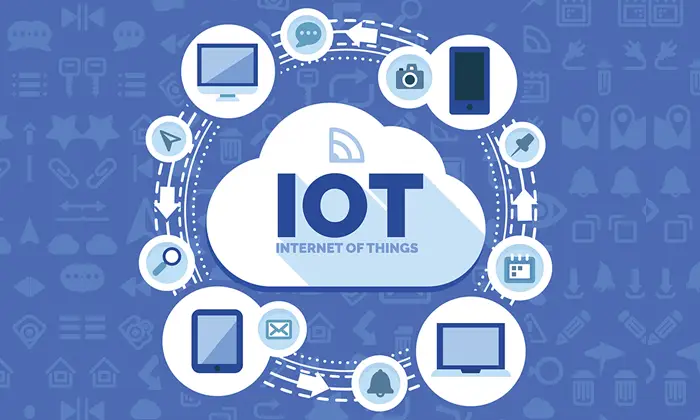The pioneering technology of the Internet of Things (IoT) has opened new gateways in the world of business. Progressive companies and enterprises have started incorporating IoT and AI into their trade operations, resulting in improved business opportunities.
Till now, we have talked a lot about IoT and how it has transformed the way we see the world. However, another technology has begun to create waves in our lives and deserves acknowledgement – artificial intelligence or AI. With the combined potential of both, companies are aiming to upgrade their work processes and arrive at conversant decisions without any human intervention.
What Role Does Artificial Intelligence Play In the IoT Revolution?
We all know how IoT has made it possible for us to transfer data over a network without any human-to-computer or human-to-human interaction. Following the same path, AI technology is now also expected to deliver a plethora of smart options, such as voice recognition, decision making, and language translation, to bring an advanced level of comfort to us.
These IoT devices work on internet connectivity and generate a huge amount of data, depending on the user’s behavior and preferences. Despite being so important, most of the companies don’t actually store and process such outsized amounts of data regularly. This is where AI comes in!
By including artificial intelligence, one can easily accrue the enormous amount of data processed by IoT devices. Not only that, but the technology also helps in analyzing the data and sorting it into practical information. In all, AI is deemed to be the chief propellant in the growth of the IoT revolution.
How Are Artificial Intelligence And IOT Impacting Various Industries?
In the initial years of AI, we have seen this technology perform and manage a narrow category of tasks, often with the help of some human intervention. However, now it is working in tandem with IoT and this merger has given rise to a new phenomenon called ‘smart machines’. These machines come with smart IoT sensors that procure real-time data and feedback and smoothly perform complex tasks in minutes.
Considering all the IoT benefits, industries are rapidly increasing the use of this technology. Let’s talk about a few of them.
1. Homeowners
Thanks to IoT, we now have smart homes where all the machines are connected through a shared network. These appliances are tech-infused and are capable of interpreting their owner’s instructions and taking decisions accordingly.
Smart home technology offers us a new way to control devices, regardless of the person’s location. For example, you can pre-decide when you want your coffee to be brewed or television to be switched on. Not only that, but the technology also brings down your energy bills by turning off appliances when not in use.
2. Manufacturing Industry
Today, smart sensors are used in many manufacturing industries, including aircrafts, household appliances, food and beverage machines, automobiles, and more. These companies integrate smart technology into their machinery to perform prognostic analysis and increase the efficiency of their production. In addition to this, IoT also helps in detecting the vital threat areas and lowering the costs.
3. Body Sensors
Smart sensors have made it into the fitness and medical industry as well. They help you keep tabs on the various bodily activities and maintain proper health. Nowadays, a lot of medical companies are investing in IoT sensors to monitor blood sugar levels and insulin release in patients.
4. Real Estate Industry
By incorporating smart sensors in buildings, builders and homeowners can ensure security and prevent accidents like fire, short-circuits, and flooding. Moreover, smart sensors also help in monitoring the movement of people in the property premises and improving energy efficiency.
5. Airlines
Sensors fitted on aircrafts help in identifying the various risks and errors that may take place. The ability of IoT sensors to predict future faults – to the degree of severity – reduces aircraft downtime and increases the safety of passengers.
Undoubtedly, the colossal shift brought in by AI and IoT is creating massive changes in the technological landscape. According to expertṣ, AI-focused IoT startups have already established themselves in the market, and are going to grow in numbers in the looming future. With intelligent reasoning and speedy data analysis capability, it will be a breeze to manage multiple IoT elements and make sense of millions of data points transmitted by them. Definitely, the future of artificial intelligence and the Internet of Things is anything but bleak at the moment, with millions of possibilities brewing up!
